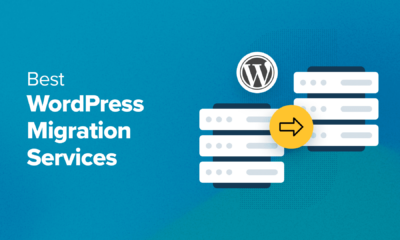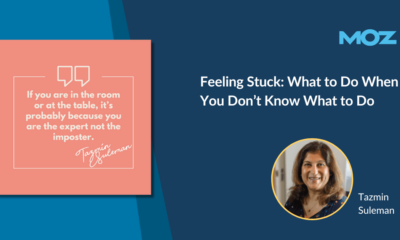The new app is called watchGPT and as I tipped off already, it gives you access to ChatGPT from your Apple Watch. Now the $10,000 question (or more accurately the $3.99 question, as that is the one-time cost of the app) is why having ChatGPT on your wrist is remotely necessary, so let’s dive into what exactly the app can do.
NEWS
Nearly 90% of consumers would choose ‘do not sell’ personal data under CCPA, study finds
Two recent surveys sponsored by BritePool show a high level of consumer concern about privacy and, if given the option, that a majority would decline to allow online publishers to sell or transfer their personal information. CCPA, which takes effect on January 1, requires sites governed by the statute to include a prominent “Do Not Sell My Personal Information” link on their homepages.
Most would choose ‘Do Not Sell.’ In September, BritePool and the USC Annenberg Center for Public Relations found, in a survey of 1,004 U.S. adults, that nearly 90% of respondents would select a “Do Not Sell” option if they encountered it on a website. The survey specifically asked the following:
“A number of new regulations have been proposed to help strengthen consumer online privacy. In the state of California, when consumers arrive at a new website, they will have the option to select ‘Do Not Sell My Personal Information’. Would you select ‘Do Not Sell My Personal Information’, or just go on to the website?”
- I would select Do Not Sell My Personal Information” — 87%
- I would just go on to the website — 8%
- Don’t know — 6%
The September survey was a follow-up to an earlier more general survey about attitudes toward online privacy and personal data. Conducted in March with 1,513 U.S. respondents, that survey posed several questions about the sharing and sale of personal data:
“I am unhappy that companies are profiting from my personal data.”
- Strongly agree — 46%
- Somewhat agree — 33%
- Somewhat disagree — 11%
- Strongly disagree — 5%
- Don’t know — 5%
“I am concerned about companies selling my data to advertisers and other companies.”
- Strongly agree — 47%
- Somewhat agree — 35%
- Somewhat disagree — 10%
- Strongly disagree — 3%
- Don’t know — 4%
“There is no good reason that a website should ever share my personal data.”
- Strongly agree — 51%
- Somewhat agree — 29%
- Somewhat disagree — 12%
- Strongly disagree — 4%
- Don’t know — 4%
Consumers not happy about personal data sharing. Though some consumers have indicated they’re open to a value exchange. It’s worth noting that the March survey gave consumers the additional choice of giving their personal information in exchange for a reward. Roughly 1 in 5 consumers chose that option.
“A number of new regulations have been proposed to help strengthen consumer online privacy. In the State of California, when consumers arrive at a new website, they will have the option to select ‘Do Not Sell My Personal Information’ or they can select ‘Reward Me for My Personal Information’. Would you select ‘Do Not Sell My Personal Information’, ‘Reward Me for My Personal Information’, or just go on to the website?”
- I would select ‘Do Not Sell My Personal Information’ — 61%
- I would select ‘Reward Me for My Personal Information’ — 21%
- I would just go on to the website — 7%
- Don’t know — 10%
Drilling into the responses by different age groups, younger consumers were more open to data sharing than older respondents. The people most receptive to sharing were those in the 18-34 age category, only 49% of whom said they would choose “Do Not Sell.”
Bob Perkins, COO of BritePool argues, based on these findings, that CCPA is actually going to have a bigger impact than GDPR. “You’ll see 3% to 4% decline in publisher revenue” because CPMs fall when targeting signals aren’t available. He also believes that as privacy laws develop across the U.S., “CCPA will be the floor not the ceiling” when it comes to rules around data collection and sharing.
Why we should care. The results of these surveys should be very concerning to publishers and martech providers. However, there is always a difference between attitudes and behavior. So the actual number of opt-outs could be less. But there are also encouraging results and data for those companies affirmatively embracing consumer privacy.
In addition, the findings about being rewarded suggest a meaningful percentage of consumers could be convinced to not opt-out in exchange for specific benefits. This echoes many other previous surveys that have similar findings.
Facebook Faces Yet Another Outage: Platform Encounters Technical Issues Again

Uppdated: It seems that today’s issues with Facebook haven’t affected as many users as the last time. A smaller group of people appears to be impacted this time around, which is a relief compared to the larger incident before. Nevertheless, it’s still frustrating for those affected, and hopefully, the issues will be resolved soon by the Facebook team.
Facebook had another problem today (March 20, 2024). According to Downdetector, a website that shows when other websites are not working, many people had trouble using Facebook.
This isn’t the first time Facebook has had issues. Just a little while ago, there was another problem that stopped people from using the site. Today, when people tried to use Facebook, it didn’t work like it should. People couldn’t see their friends’ posts, and sometimes the website wouldn’t even load.
Downdetector, which watches out for problems on websites, showed that lots of people were having trouble with Facebook. People from all over the world said they couldn’t use the site, and they were not happy about it.
When websites like Facebook have problems, it affects a lot of people. It’s not just about not being able to see posts or chat with friends. It can also impact businesses that use Facebook to reach customers.
Since Facebook owns Messenger and Instagram, the problems with Facebook also meant that people had trouble using these apps. It made the situation even more frustrating for many users, who rely on these apps to stay connected with others.
During this recent problem, one thing is obvious: the internet is always changing, and even big websites like Facebook can have problems. While people wait for Facebook to fix the issue, it shows us how easily things online can go wrong. It’s a good reminder that we should have backup plans for staying connected online, just in case something like this happens again.
NEWS
We asked ChatGPT what will be Google (GOOG) stock price for 2030

Investors who have invested in Alphabet Inc. (NASDAQ: GOOG) stock have reaped significant benefits from the company’s robust financial performance over the last five years. Google’s dominance in the online advertising market has been a key driver of the company’s consistent revenue growth and impressive profit margins.
In addition, Google has expanded its operations into related fields such as cloud computing and artificial intelligence. These areas show great promise as future growth drivers, making them increasingly attractive to investors. Notably, Alphabet’s stock price has been rising due to investor interest in the company’s recent initiatives in the fast-developing field of artificial intelligence (AI), adding generative AI features to Gmail and Google Docs.
However, when it comes to predicting the future pricing of a corporation like Google, there are many factors to consider. With this in mind, Finbold turned to the artificial intelligence tool ChatGPT to suggest a likely pricing range for GOOG stock by 2030. Although the tool was unable to give a definitive price range, it did note the following:
“Over the long term, Google has a track record of strong financial performance and has shown an ability to adapt to changing market conditions. As such, it’s reasonable to expect that Google’s stock price may continue to appreciate over time.”
GOOG stock price prediction
While attempting to estimate the price range of future transactions, it is essential to consider a variety of measures in addition to the AI chat tool, which includes deep learning algorithms and stock market experts.
Finbold collected forecasts provided by CoinPriceForecast, a finance prediction tool that utilizes machine self-learning technology, to anticipate Google stock price by the end of 2030 to compare with ChatGPT’s projection.
According to the most recent long-term estimate, which Finbold obtained on March 20, the price of Google will rise beyond $200 in 2030 and touch $247 by the end of the year, which would indicate a 141% gain from today to the end of the year.
Google has been assigned a recommendation of ‘strong buy’ by the majority of analysts working on Wall Street for a more near-term time frame. Significantly, 36 analysts of the 48 have recommended a “strong buy,” while seven people have advocated a “buy.” The remaining five analysts had given a ‘hold’ rating.

The average price projection for Alphabet stock over the last three months has been $125.32; this objective represents a 22.31% upside from its current price. It’s interesting to note that the maximum price forecast for the next year is $160, representing a gain of 56.16% from the stock’s current price of $102.46.
While the outlook for Google stock may be positive, it’s important to keep in mind that some potential challenges and risks could impact its performance, including competition from ChatGPT itself, which could affect Google’s price.
Disclaimer: The content on this site should not be considered investment advice. Investing is speculative. When investing, your capital is at risk.
NEWS
This Apple Watch app brings ChatGPT to your wrist — here’s why you want it

ChatGPT feels like it is everywhere at the moment; the AI-powered tool is rapidly starting to feel like internet connected home devices where you are left wondering if your flower pot really needed Bluetooth. However, after hearing about a new Apple Watch app that brings ChatGPT to your favorite wrist computer, I’m actually convinced this one is worth checking out.
-

 WORDPRESS6 days ago
WORDPRESS6 days ago10 WordPress Influencers to Follow in 2024 – WordPress.com News
-

 WORDPRESS7 days ago
WORDPRESS7 days ago8 Best WordPress Migration Services (Compared)
-

 MARKETING6 days ago
MARKETING6 days agoFeeling Stuck: What to Do When You Don’t Know What to Do
-

 SEARCHENGINES7 days ago
SEARCHENGINES7 days agoGoogle Image Search Adds Pixel Level Object Segmentation Animation
-

 PPC5 days ago
PPC5 days agoA History of Google AdWords and Google Ads: Revolutionizing Digital Advertising & Marketing Since 2000
-

 SEARCHENGINES5 days ago
SEARCHENGINES5 days agoMore Google March 2024 Core Update Ranking Volatility
-

 PPC5 days ago
PPC5 days agoCompetitor Monitoring: 7 ways to keep watch on the competition
-

 PPC5 days ago
PPC5 days ago31 Ready-to-Go Mother’s Day Messages for Social Media, Email, & More



